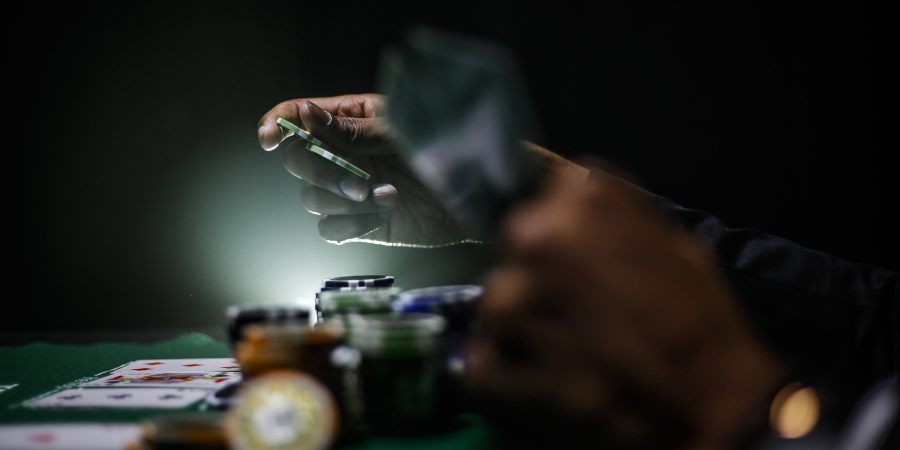Last Updated:
August 19th, 2025
Behavioural Rehab Treatment | What to Expect
We don’t often think of things like shopping, gaming or scrolling online as addictive but for some people, they become coping mechanisms or even emotional crutches. Behavioural addiction can affect your finances, mental health and relationships but they are often misunderstood or dismissed until the damage is done. Behavioural addiction treatment programmes are designed to treat these issues seriously and sensitively. They focus first on stopping the harmful behaviours and then helping you understand what’s going on beneath the surface so you can make meaningful, lasting changes in your life.

What is behavioural addiction treatment?
In many ways, behavioural addictions are very similar to substance abuse disorders. They involve the same patterns of craving, compulsive use and loss of control. You may feel a rush of pleasure or comfort in the moment, followed by shame, anxiety or the urgent need to repeat the behaviour.
Behavioural addiction treatment helps you understand these patterns so you can overcome them. It is a proven, evidence-based process which has helped countless people around the world turn their lives around.
Struggling with an addiction? If you are ready to seek help, reach out to us today, and a member of our compassionate team will help you find the best option for starting your recovery journey.
Why is behavioural addiction rehab important?
The risk of developing behavioural addictions is built into everyday life. Gambling ads pop up during football matches, online shopping is just a click away and social media encourages you to keep scrolling, buying and playing. It’s all designed to feel normal and even harmless, which makes it incredibly difficult to recognise when things have gone too far.
Behavioural addiction rehab is crucial because it gives you a break from all that noise. It takes you out of the fast, always-on world and offers a safe, structured space where you can start thinking clearly again. The triggers are no longer at your fingertips and you can reflect without pressure and make lasting lifestyle changes.
What are the most important rehab programmes for behavioural addictions?
There are almost countless forms of behavioural addictions and each needs a focused approach to recovery. Some of the most common forms of behavioural addiction which require treatment include:
Gambling addiction
Gambling addiction can create a constant chase for the next win, even when losses are mounting. Addiction treatment for gambling helps you understand why it’s been so hard to stop and how to find happiness or peace again without the need to gamble.
Gaming addiction
Gaming can be a lot of fun but it can slowly take over your entire life. Treatment for gaming addiction helps you work out what keeps pulling you in and shows you that you don’t need to escape into a screen.
Internet addiction
It is easy to lose hours online even when you know your internet use is negatively affecting your life. Addiction therapy for internet addiction gives you a calm place to unplug, clear your head and start making space for real-life connections again.
Love addiction
If your happiness depends on someone else’s attention or approval, it can be a lonely, painful experience. Love addiction rehab treatment helps you find that sense of worth and comfort within yourself so you can have healthier, happier relationships.
Porn addiction
If you’re staying up all night, neglecting real relationships or needing more extreme content to get the same effect, porn can slowly begin to destroy your life. Rehab can help you look at the emotional needs behind your porn use and how to meet those needs in a healthier way.
Sex addiction
Sex addiction isn’t always about sex but is often about feeling wanted, powerful or escaping loneliness. Sex addiction recovery treatment helps you understand where those feelings come from and how to stop them from running your life.
Shopping addiction
If your day revolves around checking sales, filling carts and hiding deliveries from your family, shopping may have become more than just retail therapy. Shopping addiction rehab programmes look at the emotions underneath your spending and how to stop the cycle.
Social media addiction
If your phone is the first thing you check in the morning and the last thing at night or if your happiness revolves solely around likes and views, your social media use can become very problematic. Social media addiction therapy gives you a break from that noise and helps you find your footing offline.
Private vs. NHS behavioural addiction rehab
In the UK, there are two options for behavioural addiction treatment: NHS services or private rehab. NHS programmes are free and can be a good option for some but waiting lists are often long and ongoing support may be limited once your treatment ends. If you need more structured, immediate care, a private addiction treatment centre for behavioural issues can offer faster access, more expansive therapy plans and a more intensive, supportive setting.
Most private centres offer inpatient addiction treatment for behavioural addiction, which means you stay on-site in a safe, distraction-free environment. This kind of immersive care helps you focus entirely on recovery, away from the triggers and stressors that feed your addictive behaviours.
The behavioural addiction rehab process
When you arrive at a private rehab centre, you will receive a private one-to-one assessment. This will help your team understand why you’re struggling and any other things that might be affecting your well-being.
Life in an addiction treatment centre for behavioural issues is highly structured. Each day follows a clear rhythm where you wake up at the same time, eat well and have regular therapy sessions and downtime. You will be away from gambling apps, shopping carts, screens or social feeds and that breathing room can make a huge difference.
Toward the end of your stay, you will sit down with the team to build a relapse prevention plan. That means thinking about your triggers, preparing for an aftercare programme and finding community recovery groups. The goal is to leave rehab with a clear path forward and with all the support you need to prevent any setbacks.
Therapies for behavioural addiction treatment
Effective behavioural addiction treatment programmes include a mix of therapies, all focused on helping you understand and change your behaviour.
One-to-one therapy sessions mean you can talk privately about what’s been going on, what the behaviour has been doing for you and what you’re ready to change.
CBT (Cognitive behavioural therapy) is a common approach, especially if your behaviour is linked to automatic thoughts like “I deserve this” or “Just one more can’t hurt.” You’ll learn to spot those thought patterns and choose something different before you act on impulse.
If you’re feeling unsure about change or part of you still wants to keep the behaviour, Motivational Interviewing can help. It involves conversations that help you talk through the push and pull so you can figure out what you really want and how to get there.
Many people in treatment also work through past pain so if that’s part of your story, trauma-informed therapy gives you a safe space to gently explore what you’ve been through.
Group therapy can sound intimidating but it can be one of the most powerful parts of rehab. Being in a room with others who have felt the same urges and the same shame or confusion can help you feel less alone and more understood.
If your behaviour has hurt or distanced people you love, family therapy can give you all a space to talk openly and start rebuilding trust with guidance and support.
And when words don’t come easily, holistic therapies like art, music and yoga can help you express things that are hard to explain and remind you of who you are outside of the addiction.
Begin behavioural addiction treatment today
If your habits are getting harder to hide or harder to control, it’s time to talk. Addiction Helper can help you take back control. Contact us today and let’s take the first step together.
Our compassionate team are ready and available to take your call, and guide you towards lasting the lasting addiction recovery you deserve.
Frequently Asked Questions
(Click here to see works cited)
- UK Rehab. “Behavioural Addictions.” UK Rehab, https://www.uk-rehab.com/behavioural-addiction/. Accessed 11 June 2025.
- Alavi, Seyyed Salman et al. “Behavioral Addiction versus Substance Addiction: Correspondence of Psychiatric and Psychological Views.” International journal of preventive medicine vol. 3,4 (2012): 290-4.
- UK Addiction Treatment Centres. “Behavioural addiction.” UK Addiction Treatment Centres, https://www.ukat.co.uk/addiction/behavioural/. Accessed 11 June 2025.
- Grant, Jon E et al. “Introduction to behavioral addictions.” The American journal of drug and alcohol abuse vol. 36,5 (2010): 233-41. doi:10.3109/00952990.2010.491884


